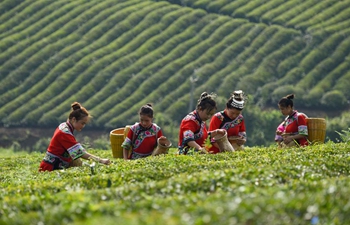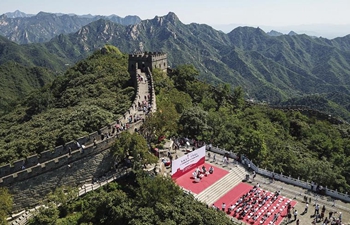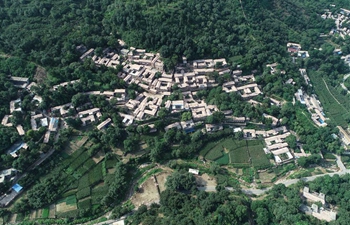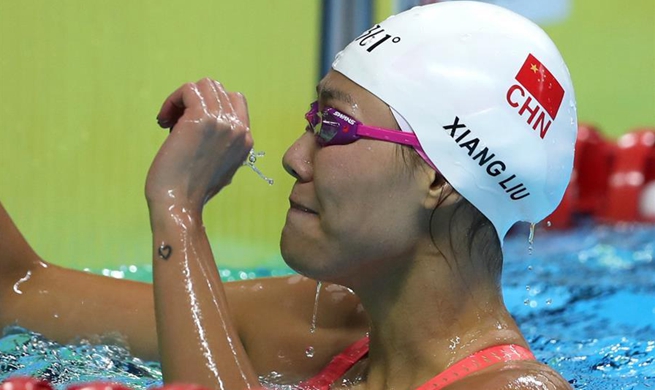BERLIN, Aug. 22 (Xinhua) -- German companies are planning to ramp up their investments on the African continent during the coming years, president of the German-African Business Association Stefan Liebing announced on Wednesday.
"We are already witnessing a significant increase in the investment- and trading activity with our neighboring continent," Liebing told reporters.
According to an estimate by the association, new investments by German companies in Africa will rise by more than 10 percent to a total of more than one billion euros (1.15 billion U.S. dollars).
Liebing explained that at least part of the increase reflected recent changes in the German regulatory landscape.
Back in June, the German government announced that it would ease the conditions which must be met for domestic small- and mid-sized enterprises (SMEs) to access export guarantees in trade with certain African countries.
Thomas Bareiss, secretary of state in the ministry for the economy, said at the time that closer economic ties between Germany and African nations were a key priority of Chancellor Angela Merkel's governing cabinet.
Towards this end, Berlin has taken steps to lower the insurance excess shouldered by these firms or the banks they work with in international trade between Germany and African states.
The new regulations apply to countries which have joined a G20 initiative for more international investment and were SMEs previously faced relatively steep deductible rates of up to 5 percent.
Amongst others, German exporters operating in the African markets of Cote D'Ivoire, Senegal, Ethiopia, Ghana and Rwanda stand to benefit from the expansion of government guarantees.
Commenting on the development on Wednesday, Liebing expressed confidence that the change would boost trade and capital flows between Germany and Africa.
"It's working. A large number of projects have been successfully realized (as a consequence of the new policy regime)," Liebing said.
He noted that the volume of export guarantees for Africa more than doubled during the first six months of the year to 1.09 billion euros (1.26 billion U.S. dollar) and had hence already surpassed the total annual level of 2017.
Liebing pointed to the opening of a Volkswagen plant in the Rwandan capital of Kigali, as well as an ongoing cooperation between German Gauff Engineering and a Chinese partner to build Africa's longest suspension bridge in Mozambique.
While Germany is still a relatively small player in Africa, China has emerged as one of the continent's largest trading and investment partners.
Liebing argued that German companies should seize opportunities to cooperate with their Chinese counterparts rather than seeing them as rivals.
Liebing said that expanding African infrastructure provision was the key to raising productivity and promoting sustainable growth and better international cooperation. "Package solutions" offered by China in this context offered Germans an exemplary model of how to boost economic growth in Africa, he said.
"We should stop viewing China exclusively as a competitor. First successful examples show how Chinese and German firms can achieve mutually-beneficial outcomes in Africa," Liebing told press. "The only truly-sustainable form of developmental aid is to create local jobs", he added.
The German-African Business Association was founded in 1934 to support firms from Germany in their commercial involvement in African countries. Germany's exports to Africa currently account for around two percent of its total volume of international trade.













